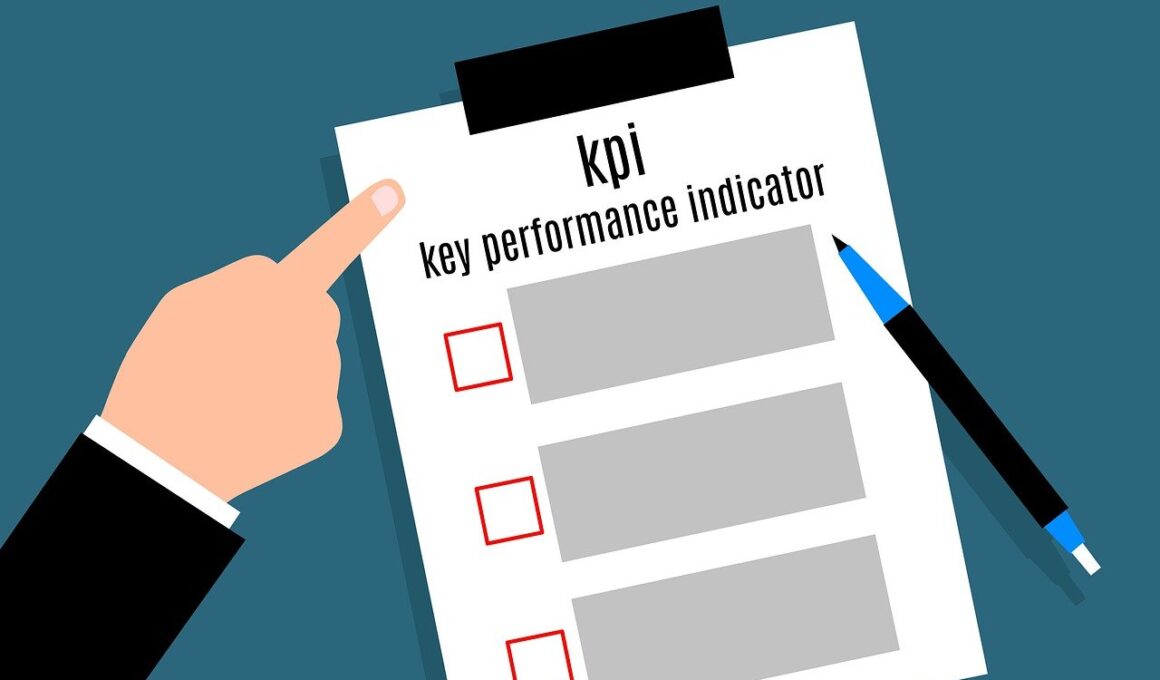Utilizing Performance Reviews to Refine Content Scheduling Strategies
Content scheduling can significantly impact the effectiveness of content strategies, and performance reviews offer vital insights for refining this process. By conducting regular performance reviews, teams can assess how well their content meets audience expectations and business goals. These reviews ensure that the schedule aligns with audience engagement metrics and feedback. Furthermore, incorporating regular evaluation helps identify the types of content that resonate best with the audience. Aspects such as timing, format, and channels become clearer through performance reviews, which is essential when adjusting strategies. The feedback gathered, when analyzed correctly, paints a comprehensive picture of what the audience craves. This analysis, in turn, drives the next steps in content creation and scheduling. Teams should consider integrating tools that help them track and assess performance data continuously. Aligning content schedules with actionable insights from performance reviews is necessary to maintain relevance in a dynamic landscape. Stakeholders must champion this integration, ensuring that scheduling processes evolve based on real-world effectiveness rather than assumptions.
In any productive environment, establishing clear goals is crucial, especially concerning content scheduling techniques. Setting specific objectives during performance reviews creates a substantial groundwork for these goals. Teams can collaborate to develop Content Key Performance Indicators (KPIs) aligned with their overarching business objectives. During the performance review stage, it is critical to revisit these KPIs and verify if they align with current trends and audience expectations. If discrepancies arise, adjusting the scheduling process becomes necessary to address the evolving demands of target demographics. These adjustments might entail modifying the frequency of content releases or even exploring new formats test various strategies. Incorporating audience feedback aids in shaping the content calendar effectively, ensuring it meets both qualitative and quantitative KPIs. Regular performance reviews foster an ongoing discussion about content success, allowing teams to be agile and proactive. The promotion of transparent discussions can strengthen team collaboration, as every member is aware of the performance indicators in place. Equally, establishing a supportive environment opens avenues for innovative ideas and continuous improvement.
The significance of analytics in enhancing performance reviews cannot be overstated since data-driven decisions lead to impactful scheduling strategies. By utilizing analytics tools, content teams can gather metrics regarding previous content performance in real time. For example, examining engagement rates, click-through rates, and overall traffic can reveal nuanced insights into audience preferences. Performance reviews can utilize these insights taken from analytical platforms, enabling data-backed revisions to the content schedule. Insights such as peak engagement times and preferred content types can guide future scheduling. By addressing questions like, “What types of content generated the most interactions?” or “When was our audience most active?” a clearer path to effective scheduling emerges. Integrating sophisticated analytics fosters an informed approach, wherein past successes are explored and duplicated in future content endeavors. Moreover, documenting analytics findings helps create a historical reference for future performance reviews. This documentation enables teams to identify patterns and trends in their audience over time, empowering them to optimize schedules for improved reach and effectiveness efficiently.
Collaboration is vital in content scheduling, and leveraging insights from performance reviews can significantly enhance teamwork. Involving diverse team members in the review process elevates the quality of discussions surrounding content effectiveness. Each member can provide unique perspectives on what content resonated with the audience based on their experiences or data analyses. This collaborative approach ensures that scheduling practices reflect a comprehensive understanding of audience needs and aspirations. Fostering an environment where constructive feedback is valued promotes a culture of continuous improvement. Moreover, recognizing individual contributions encourages team members to engage more deeply with the content creation process. Regular collaborative reviews allow for active discussion about innovative formats, emerging trends, or new topics. These discussions can inspire exciting content ideas that may otherwise remain unexplored. With collaborative input, a content calendar evolves into a collective vision rather than merely a checklist of tasks. This aligns everyone involved, driving engagement and ensuring a robust content response that captures and retains audience attention.
True Value of Agility in Scheduling
Agility in content scheduling is crucial, particularly in a landscape that constantly shifts based on audience behavior and industry trends. Incorporating insights from performance reviews enables teams to embrace flexibility in their scheduling strategies. A rigid content calendar could lead to missed opportunities if it fails to respond to audience demands or macro-environment changes. By analyzing feedback and performance during reviews, content creators can make timely adjustments that align with emerging trends. Agile scheduling also allows teams to capitalize on unplanned events or viral topics in real time, tapping into the immediate interest of their audience. Adopting a mindset of agility fosters a proactive rather than reactive approach, which is vital in today’s fast-paced digital environment. Plans should always have room for adjustment, as the best opportunities often lie outside typical content schedules. It’s essential for teams to remain alert to shifts in audience preferences and adapt plans based on timely insights. This ongoing reevaluation fueled by performance reviews supports a more dynamic content marketing strategy.
Content scheduling should incorporate lessons learned through performance reviews to maximize its overall effectiveness. Conducting retrospective analyses not only identifies past successes but also highlights areas needing improvement. By embracing a learning mindset, teams are encouraged to fine-tune their scheduling practices based on what has proven effective. This reflective process should involve scrutinizing both successes and failures; willingness to learn from missteps is honorable. It ensures continuous adaptation to audience feedback, which evolves over time. Performance reviews that assess audience signals can foster a greater awareness of the nuances within audience preferences. This awareness leads to more impactful content scheduling, as teams can proactively pivot their strategies. Encourage regular documentation of insights gleaned from these reviews for thoughtful discussions during planning meetings. Open communication about past results and proposed adjustments allows for more collaborative scheduling strategies. Ultimately, prioritizing growth through ongoing learning enhances both content relevance and discoverability while reinforcing the brand’s place in the market.
Lastly, stakeholder engagement is critical in enhancing the impact of performance reviews on content scheduling. Involving key stakeholders helps create a sense of ownership over the scheduled content practice and facilitates investment in collective goals. Frequent updates and discussions around performance review findings establish transparency and accountability. Decision-makers should be encouraged to provide feedback and contribute their perspectives on potential adjustments to the scheduling process. By involving them in the performance review discussions, teams cultivate partnerships rooted in shared objectives. Engaging stakeholders adds layers of insights typically overlooked when viewed through a narrow focus. Building collaborative bridges ensures that all parts of the organization contribute to shaping content strategy collaboratively. This open dialogue nurtures relationships and promotes the overall health of content marketing practices. Implementing ideas and preferences from relevant stakeholders is essential as it creates a stronger alignment with the overall business strategy. When content schedules reflect the insights and needs of a broad group of stakeholders, their likelihood of success among targeted audiences skyrockets.
Ultimately, refining content scheduling strategies through performance reviews pays dividends in many forms. A structured approach based on consistent analysis ensures the content aligns with audience interests and evolves with their preferences. Emphasizing the importance of ongoing performance reviews fosters a culture where data and insights drive decision-making. Following through with commitment allows teams to maintain relevance in an increasingly competitive landscape. Moreover, these strategies enable businesses to adapt to unforeseen challenges while capitalizing on emerging opportunities. As teams learn from the past, they position themselves favorably to anticipate future trends. Dedicated evaluations ultimately provide the necessary feedback loop to inform future content strategies effectively. When teams embed the insights from performance reviews into their content schedules, they cultivate a proactive relationship with their audience while fostering trust in their brand. With the right approach, content scheduling becomes a dynamic and responsive practice that not only meets but exceeds audience expectations, driving engagement and fostering brand loyalty.


